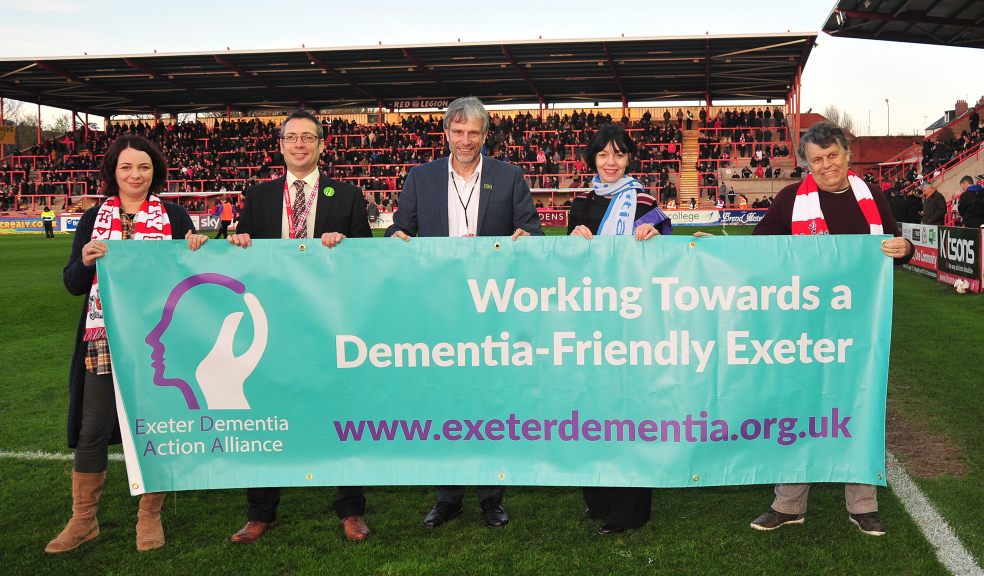
City council faces up to dementia
As more and more people are diagnosed with Dementia, Exeter City Council has revealed its commitment to the challenges faced by arguably the biggest health crisis facing the UK and how it is helping those with dementia to access its services.
Last year the City Council became a member of the Exeter Dementia Action Alliance. In doing so, it joined over 50 organisations and businesses within Exeter, working to make the city dementia friendly.
Now the Council has mapped out how it is going to help those with the condition.
A number of the actions come about as a result of a report produced by a Council task and finish group.
These include:
- Offering people with dementia later appointments in the day
- Continuing to support Dementia Friends staff training across the Council
- Getting appropriately trained staff in the Council’s Customer Service Centre to wear Dementia Friends badges
- Looking to establish dementia training as a compulsory requirement for taxi drivers
- Encouraging organisations such as the Alzheimer’s Society, memory cafes and Age Concern to apply for allotments for use by those with dementia
It is estimated that there are currently some 850,000 people living with Dementia in the UK and this figure is predicted to rise to 2 million by 2051.
Research suggests that individuals with dementia can often feel depressed, anxious, isolated and often stigmatised and not part of the community.
Cllr Lesley Robson, Member Champion for Older People, said: “We are doing all we can to improve the provision of services to those with dementia and their carers.
“We have to recognise that dementia will affect more and more people in Exeter as time goes by and in doing so, how we can help them in their everyday lives. Part of this commitment involves improving the way in which front line staff identify and assist customers with dementia.”
The City Council is looking to build on this work by becoming a dementia friendly organisation, continuing to ensure that the services offered strive to reflect the needs of individuals.













